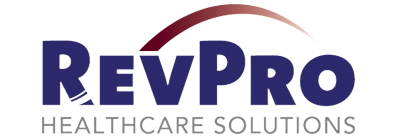The healthcare industry faces an unprecedented challenge: protecting patient records. As medical institutions increasingly rely on electronic health records (EHRs) to store and manage patient information, safeguarding this sensitive data from cyber threats and unauthorized access has become paramount. The significance of data protection in healthcare cannot be overstated, as it directly impacts patient privacy, the integrity of medical information, and the overall trust in healthcare systems. We are going to look into the importance of data protection for patient records and the best practices healthcare providers can implement to ensure security.
The Stakes: Why Protecting Patient Records Matters
Patient records contain a wealth of sensitive information, including personal identification details, medical history, treatment plans, and financial data. Unauthorized access to this information can lead to severe consequences, such as identity theft, medical fraud, and a breach of patient confidentiality. Furthermore, compromised data integrity can result in incorrect diagnoses or treatments, endangering patient safety.
In addition to the direct harm to patients, healthcare organizations face legal and financial repercussions from data breaches. Regulatory bodies, such as the Health Insurance Portability and Accountability Act (HIPAA) in the United States, impose strict requirements on the protection of patient data. Noncompliance can result in hefty fines and damage to an organization’s reputation. Thus, implementing robust data protection measures is not just a regulatory requirement but a critical component of patient care and organizational integrity.
Key Threats to Patient Data
Patient data faces several key threats that healthcare providers must vigilantly guard against. Cyber attacks are a primary concern, with cybercriminals targeting healthcare organizations due to the high value of medical data. These attacks often involve ransomware, phishing, and malware, which can compromise patient records and disrupt essential services. Insider threats also pose significant risks, as unauthorized access or misuse of data by employees, whether due to malicious intent or negligence, can lead to breaches. Additionally, data theft through the physical theft of devices such as laptops, smartphones, or portable drives is a notable risk. System vulnerabilities in software or hardware can be exploited by attackers, providing another avenue for unauthorized access to sensitive patient information. Understanding these threats is crucial for developing effective data protection strategies.
Best Practices for Data Protection
To mitigate these risks, healthcare providers must adopt comprehensive data protection strategies. Here are some best practices:
Implement Strong Access Controls
Access to patient records should be restricted to authorized personnel only. Multifactor authentication (MFA) can add an extra layer of security by requiring multiple forms of verification before granting access. Role-based access controls (RBAC) ensure that employees can only access data necessary for their job functions.
Encrypt Data
Encryption converts data into a coded format that can only be deciphered with the correct decryption key. Encrypting data both at rest (stored data) and in transit (data being transmitted) ensures that even if it is intercepted, it remains unreadable to unauthorized parties.
Regularly Update and Patch Systems
Keeping software and systems up-to-date is crucial for protecting against known vulnerabilities. Regular updates and patches help close security gaps that could be exploited by attackers.
Conduct Regular Security Audits and Assessments
Regular security audits and risk assessments help identify potential weaknesses in data protection measures. Conducting penetration testing can simulate cyber attacks to test the effectiveness of security controls.
Train Employees on Data Security
Employees play a critical role in data protection. Regular training sessions on cybersecurity best practices, such as recognizing phishing attempts and secure handling of patient information, can reduce the risk of human error leading to data breaches.
Develop an Incident Response Plan
Despite best efforts, data breaches can still occur. Having a robust incident response plan in place ensures that healthcare providers can quickly and effectively respond to data breaches, minimizing damage and recovery time.
The Role of Technology in Data Protection
Advancements in technology offer robust solutions to enhance data protection in healthcare. These technologies can also automate responses to mitigate risks in real-time. Blockchain technology provides a decentralized and secure method for recording transactions, ensuring that once data is recorded, it cannot be altered, thus offering an additional layer of security for patient records. Cloud security solutions, provided by cloud service providers, offer advanced features such as data encryption, secure access controls, and continuous monitoring. Leveraging these solutions enables healthcare organizations to enhance data protection without significant investment in on-premises infrastructure. By integrating these technological advancements, healthcare providers can significantly bolster their security measures, safeguarding sensitive patient data more effectively.
Conclusion
The protection of patient records is a critical responsibility for healthcare providers. By implementing robust security measures and staying abreast of technological advancements, healthcare organizations can safeguard sensitive data, maintain patient trust, and comply with regulatory requirements. Prioritizing data protection is not just about preventing breaches; it’s about ensuring the safety and well-being of patients and upholding the integrity of the healthcare system. At RevPro Healthcare, we are committed to providing the highest standards of data security to protect the valuable information entrusted to us. Give us a call to learn how to make your system efficient, secure, and maximize cash flow: 561-578-8400

